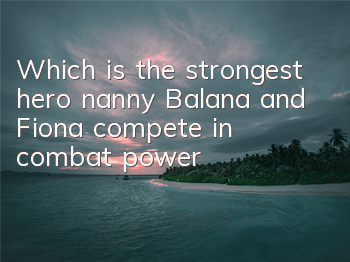Why are most Three Kingdoms games not doing anything about Jin?
The Three Kingdoms should be a history spanning three generations and a hundred years, rather than a story with only one generation.
The Three Kingdoms has always been one of the most commonly used cultural themes in game production. In this turbulent era of changing turbulent times, heroes have emerged and heroes have emerged, writing a magnificent history. However, the Three Kingdoms should have been a history spanning three generations and a hundred years, but why are most Three Kingdoms games on the market always over-focus on the first half of the plot of Wei, Shu and Wu, and there are almost no plots of the late Three Kingdoms, let alone the Jin State, as if the Three Kingdoms are just the story of that generation.
If you look at the reasons carefully, Luo Guanzhong's "Romance of the Three Kingdoms" is undoubtedly the "culprit". Its exciting plot design, distinctive character portrayal and strategic game make its influence far exceed that of the historical book "The Three Kingdoms", and it has become the enlightenment of the "Three Kingdoms" for most people.
But "Romance of the Three Kingdoms" is just a novel after all, and it is a novel with a strong tendency. The book has a total of 120 chapters, which are developed in five parts: the Yellow Turban Rebellion, the dispute between the princes, the Three Kingdoms to the Three Kingdoms Return to Jin. But just the Three Kingdoms Return to Jin, Zhuge Liang spent 104 chapters to the Three Kingdoms Battle. The last few decades of the Three Kingdoms Return to Jin only account for the last fifteen chapters of the book.
This not only caused the Jin forces to appear late, but also lacked the preparation of the space. In the meantime, the plots of Wu and Shu countries were also ignored by Luo Guanzhong's sacrifice. Many wars and characters were mentioned in one stroke. In a hurry, Sima Yan became emperor and the Three Kingdoms also returned to Jin. Without the meticulous description of war and character portrayal, the excitement of the latter Three Kingdoms is naturally difficult to compare with the previous period.
In addition, it is precisely because of the far-reaching influence of "Romance of the Three Kingdoms" that most TV series, movies and games in later generations interpret the content of the early and mid-stage Three Kingdoms as the core, further deepening people's impression of the early and mid-stage Three Kingdoms. So much so that the familiarity among the public is far inferior to that of the early and mid-stage Three Kingdoms. The Jin State in the late Three Kingdoms period has become something that many people do not understand. There is even a misunderstanding that the talents in the late Three Kingdoms period have withered and one generation is worse than the other, which makes the post-Three Kingdoms era not exciting enough.
However, in the late Three Kingdoms, there were still civil officials and military officials who had outstanding performances such as Deng Ai, Guo Huai, Zhou Chu, Ding Feng, Xiahou Ba, Du Yu, Wen Yang, Wang Jun, Jia Chong, Yang Hu, Lu Kang, Zhuge Ke, Wen Qin, and Wu Qiu Jian. However, they did not have the bonus of "Romance of the Three Kingdoms", and most people basically did not know them, let alone their wonderful deeds.
For example, although the "Dongxing Battle" in the late Three Kingdoms was not famous, it was not inferior to the Battle of Chibi and Guandu, and the wonderful battle of "resisting more with less".
The battle took place in Dongxingdi, which was originally a strategic location for Sun Quan's Northern Expedition from Hefei, but after his failure in many Northern Expeditions, he gave up this offensive route and was idle. andThis year, just as Sun Quan died, ten-year-old Sun Liang succeeded to the throne, and the real power fell into the hands of the then Grand Turkish Master Zhuge Ke. Zhuge Ke decided to repair the Dongxing Dike and cast two city docks on the left and right of the Dongxing Dike to strengthen offensive and defensive capabilities, which was very intended to restart the Northern Expedition.
The Wei State was naturally unwilling, and considering that Sun Quan had just died, it might be a good opportunity to take down Dongxingdi, so he sent three teams to ask Wang Chang to attack Jiangling, Qiqiu Jian to attack Wuchang, block the reinforcements of the Eastern Wu, and Sima Zhao led 70,000 elite troops to attack Dongxingdi.
But unexpectedly, Zhuge Ke overthrew the 70,000 elite troops with only 40,000 troops. Among them, the veteran Ding Feng was the key to victory. He believed that the enemy was large and we were few, and the opponent must not be allowed to occupy the favorable terrain first. So he led 3,000 soldiers, without wearing armor, and only with a short knife and a shield, and rushed to Dongxingdi. As expected, the careless Wei army was attacked and dispersed in one fell swoop.
Afterward, the troops of Zhuge Ke, Tang Zi, Lu Ju and others also came to Dongxingdi and annihilated the Wei army from different directions. At the same time, Zhu Yi's troops also destroyed the Wei army's floating bridge behind the enemy. It was winter at this time, and the Wei army was not good at water. They attacked each other in front and back, and the army was in chaos, and countless people were trampled and drowned. The Eastern Wu won a great victory.
At the same time, the "Dongxing Battle" was also one of the most tragic battles in the Wei State. The 70,000 elite troops were almost wiped out, second only to the Battle of Chibi, and directly triggered rebellions within Wei, commonly known as the "Two Rebellions in Huainan". Wuqiu Jian and Wen Qin issued a document to attack Sima Shi, but were strongly suppressed by Sima Shi, and Zhuge Ke and Ding Feng were thus won to be the gods.
However, the most worth mentioning of Wei State was the Battle of Shouchun, which was the "Three Rebellions in Huainan", which was the largest battle in the entire Three Kingdoms period. At that time, Sima Zhao was actively preparing for usurping the throne. After Zhuge Dan noticed it, he immediately rebelled with Shouchun and surrendered to Wu State for help. The Huainan army under his command had nearly 200,000 troops. After learning about the situation, Sima Zhao personally led 260,000 to fight south, and the Eastern Wu also sent Zhu Yi, Ding Feng and others to support Shouchun, supporting 100,000 troops in front and behind, with a scale of more than 500,000 troops in the three parties.
But Sima Zhao was very agile. Knowing that his army could not take Zhuge Dan's Huainan Army head-on, he determined Zhuge Dan's personality weakness and deliberately surrounded Shouchun without fighting. Not only could he take the opportunity to annihilate the reinforcements of the Eastern Wu, but he could also trap the Huainan Army in Shouchun City to death by siege.
However, even though Sima Zhao's plan was implemented smoothly, the battle lasted for a full ten months, but it fully demonstrated Sima Zhao's strong military strength and extraordinary strategy.
But most people's impression of Sima Zhao often comes from "Sima Zhao's heart, which is known to everyone", believing that he is just a treacherous minister and usurper who plays with power. People's lack and distortion in the post-Three Kingdoms era made "Rutuzhibin" decide to further promote the development of the Three Kingdoms culture in the game, allowing players to see a more comprehensive and complete history of the Three Kingdoms.
Therefore, in the anniversary version of "Lutuzhibin" [Unboundary], except for Shu, Wei, Wu, Qun and Han,A brand new force will be launched: Jin. The new Jin power and the characters from the latter Three Kingdoms will take turns to appear. These characters can shine in the late Three Kingdoms. The skills and charm that are consistent with their actual situation are definitely not inferior to those of the civil servants and generals of the Wei, Shu and Wu period.
For example, the most popular Sima family, in addition to Sima Yi, Sima Yan, Sima Zhao, Sima Shi and Sima You all appeared in Jin State, their skills are also very distinctive.
Taking Sima Shi as an example, as the founder of the Western Jin Dynasty, he monopolized the power in the court and military affairs. He repeatedly sorted out the court guidelines for the Sima family, suppressed and rehabilitated, consolidated his status and his family, and his ability was even far superior to Sima Zhao.
Sima Shi's military general tactic is "decisive victory". Every time he launches active tactics, there is a probability that the enemy's individuals will fall into a state of rampage, and a strategic attack on all the enemy's targets in chaos and rampage. The civil officials' policy "Fuhuai Yin Label" is to serve as military facilities to join the army, and to enable military facilities to use reserve troops to recruit soldiers, increase the storage limit of reserve troops and the replies of reserve troops, which is not only closely related to their deeds and abilities, but also has a very good intensity.
In addition, there are many military generals not familiar to the newly appeared in Jin State, such as Wei Guan, who guarded the border of the Western Jin Dynasty and Wen Yang, who defeated the Xianbei in the West. They are famous civil officials and military generals of the Jin State. Their deeds are a brilliant mark in the history of the Three Kingdoms, but they are not famous because they are ignored by the Romance of the Three Kingdoms.
However, in the new anniversary version of "Rutuzhibin", we can see these famous generals of the Three Kingdoms who were ignored and forgotten by the Romance, and re-understand their heroic deeds.
Perhaps there are too many strangers in the post-Three Kingdoms era than those familiar to the Three Kingdoms, but this just proves that "Rutuzhibin" takes into account both restoration and innovation, giving us a more realistic and innovative new world of the Three Kingdoms.
On the occasion of the anniversary, the emergence of Jin State will usher in a new era of "Rutu Zhibin", and those little-known history will also go to the forefront and inject new vitality into the culture of the Three Kingdoms.









